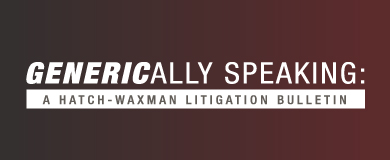- Acumen Powered by Robins Kaplan LLP®
- Affirmative Recovery
- American Indian Law and Policy
- Antitrust and Trade Regulation
- Appellate Advocacy and Guidance
- Business Litigation
- Civil Rights and Police Misconduct
- Class Action Litigation
- Commercial/Project Finance and Real Estate
- Corporate Governance and Special Situations
- Corporate Restructuring and Bankruptcy
- Domestic and International Arbitration
- Entertainment and Media Litigation
- Health Care Litigation
- Insurance and Catastrophic Loss
- Intellectual Property and Technology Litigation
- Mass Tort Attorneys
- Medical Malpractice Attorneys
- Personal Injury Attorneys
- Telecommunications Litigation and Arbitration
- Wealth Planning, Administration, and Fiduciary Disputes
Acumen Powered by Robins Kaplan LLP®
Ediscovery, Applied Science and Economics, and Litigation Support Solutions
-
April 15, 2024Robins Kaplan Named to 2024 BTI Client Service A-Team
-
April 9, 2024Robins Kaplan LLP Files Complaint Against Social Media Giants Meta, Snap, TikTok on Behalf of Spirit Lake Nation, Menominee Indian Tribe of Wisconsin
-
April 8, 2024Tara Sutton, Emily Tremblay Shortlisted for Euromoney’s Women in Business Law Awards
-
April 24, 2024IP Leadership Executive Summit
-
April 24, 2024IP Odyssey: Navigating the Latest Developments in Intellectual Property Law
-
April 30, 2024Navigating Generational Dynamics
-
March 2024e-Commerce: Pitfalls and Protections
-
March 22, 2024‘In re Cellect’:
-
March 14, 2024How Many Cases Have You Tried to a Verdict?
-
September 16, 2022Uber Company Systems Compromised by Widespread Cyber Hack
-
September 15, 2022US Averts Rail Workers Strike With Last-Minute Tentative Deal
-
September 14, 2022Hotter-Than-Expected August Inflation Prompts Massive Wall Street Selloff
Find additional firm contact information for press inquiries.
Find resources to help navigate legal and business complexities.
The Medicines Co. v. Hospira, Inc.
Claims held invalid based on application of on-sale bar when sale of manufacturing services was deemed a commercial offer for sale.
October 15, 2015

Case Name: The Medicines Co. v. Hospira, Inc., Fed. Cir. Nos. 2014-1469, -1504, 2015 U.S. App. LEXIS 11410 (Fed. Cir. July 2, 2015) (Circuit Judges Dyk, Wallach, and Hughes presiding; Opinion by Hughes, J.) (Appeal from D. Del., Andrews, J.)
Drug Product and Patent(s)-in-Suit: Angiomax® (bivalirudin); U.S. Patents Nos. 7,582,727 ("the '727 patent") and 7,598,343 ("the '343 patent")
Nature of the Case and Issue(s) Presented: The Medicines Company ("TMC") owns the patents-in-suit, which cover Angiomax for injection. From 1997 to 2006, TMC purchased pharmaceutical batches of Angiomax from Ben Venue Labs. ("BVL"). One year before filing the patent applications that ultimately issued into the patents-in-suit, TMC hired BVL to prepare three batches of bivalirudin using an embodiment of the patented invention. Each invoice for these services identifies a "charge to manufacture Bivalirudin lot." Each lot was marked with a commercial-product code and a customer lot number, and was released to TMC for commercial and clinical packaging.
The on-sale bar under 35 U.S.C. § 102(b) applies when, before the critical date, the claimed invention (i) was the subject of a commercial offer for sale; and (ii) was ready for patenting. The district court found that the claimed invention was ready for patenting but not commercially offered for sale before the critical date. The Federal Circuit reversed, holding that the on-sale bar was applicable and that the claims at issue were invalid.
Why Hospira Prevailed: The district court had concluded that (i) no commercial sale had occurred because BVL had sold only manufacturing services, not pharmaceutical batches, and (ii) the batches fell under the experimental-use exception. To ensure the on-sale bar doctrine is not easily circumvented, the Federal Circuit has held that the inventor has commercially exploited the invention before the critical date, even if the inventor did not transfer title to the commercial embodiment of the invention. TMC paid BVL for performing services that resulted in the patented product-by-process, and thus the Federal Circuit held that a "sale" of services occurred. Moreover, the sale of the manufacturing services provided a commercial benefit to the inventor more than one year before a patent application was filed. BVL marked the batches with commercial-product codes and customer lot numbers and sent them to TMC for commercial and clinical packaging, consistent with the commercial sale of pharmaceutical drugs. TMC admitted that each batch had a commercial value of over $10 million. Finally, there was no dispute that the batches had the levels of Asp9-bivalirudin required by the claims, and therefore it was irrelevant whether TMC knew that the process limitations of the asserted claims reliably and consistently produced levels of Asp9-bivalirudin below 0.6%. In sum, a commercial sale had occurred.
The Federal Circuit also held that the district court erred in finding that the experimental-use doctrine bars the application of the on-sale bar to the BVL batches. Experimental use cannot occur after a reduction to practice. TMC argued that it had not reduced the invention to practice when the batches were made because it did not appreciate the maximum-impurity-level limitation of the claimed invention until after twenty-five batches of bivalirudin were manufactured. However, the Federal Circuit has long held that where an invention is on sale, conception is not required to establish reduction to practice. In any event, here the batches sold satisfied the claim limitations, and the inventor was well aware that the batches had levels of Asp9-bivalirudin well below the claimed levels of 0.6%.
Related Publications
Related News
If you are interested in having us represent you, you should call us so we can determine whether the matter is one for which we are willing or able to accept professional responsibility. We will not make this determination by e-mail communication. The telephone numbers and addresses for our offices are listed on this page. We reserve the right to decline any representation. We may be required to decline representation if it would create a conflict of interest with our other clients.
By accepting these terms, you are confirming that you have read and understood this important notice.
